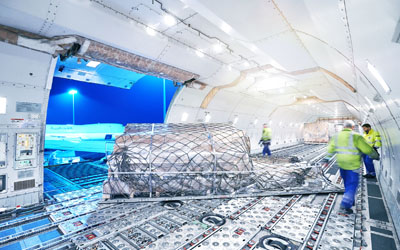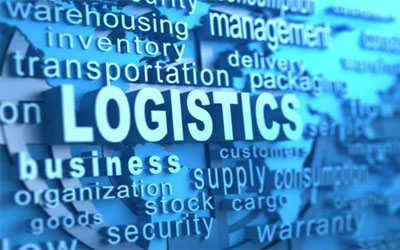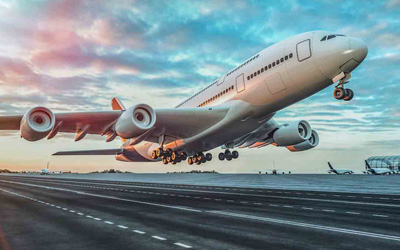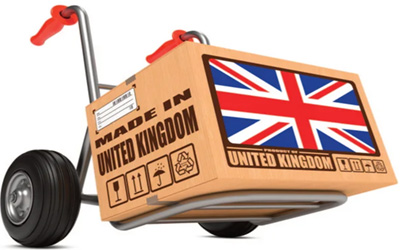Unlocking the Potential of Air Freight: Addressing Your Key Questions
The air freight industry serves as a vital cog in the global supply chain, catering to the diverse needs of businesses and individuals alike. Facilitating the swift and efficient transportation of goods, air freight shipping is celebrated for its speed, reliability, and global reach. If you’re contemplating the use of air freight shipping, you likely have a myriad of questions about how it operates, its suitability for your requirements, and the intricacies that come with it.
Let’s delve into some of the most frequently asked questions about the air freight industry to provide you with a clearer understanding of this dynamic sector:
1. What is air freight Shipping?
 Air freight shipping , in its essence, refers to the transportation of cargo by air. It leverages aircraft, including cargo planes, to transport a wide array of goods across long distances, often spanning international borders and even oceans. This method of transportation is highly regarded for its dependability and its ability to provide global coverage. Typically, businesses and individuals opt for air freight shipping when dealing with cargo of high value, goods with time-sensitive delivery requirements, or shipments necessitating special handling.
Air freight shipping , in its essence, refers to the transportation of cargo by air. It leverages aircraft, including cargo planes, to transport a wide array of goods across long distances, often spanning international borders and even oceans. This method of transportation is highly regarded for its dependability and its ability to provide global coverage. Typically, businesses and individuals opt for air freight shipping when dealing with cargo of high value, goods with time-sensitive delivery requirements, or shipments necessitating special handling.
2. How does air freight differ from other transportation modes?
Air freight shipping sets itself apart from other common transportation modes like ocean, road, or rail freight in several ways. It distinguishes itself as the fastest means of transportation, ideally suited for time-sensitive cargo. Furthermore, it boasts extensive global reach, making it capable of reaching almost any location on the planet.
However, air freight shipping speed and reach can come with higher costs and certain size or weight restrictions. These limitations are offset by specialized and secure shipping options that ensure the safety of high-value, temperature-sensitive, time-critical, and unique cargo during transit.
3. How are air freight costs calculated?
 The cost of air freight shipping is influenced by a variety of factors related to the cargo itself. Attributes such as cargo type, size, weight, volume, origin, and destination, as well as the type of freight aircraft used, collectively contribute to the overall cost. Additionally, specific handling requirements, customs clearance expenses, and applicable taxes can play a role in the final price.
The cost of air freight shipping is influenced by a variety of factors related to the cargo itself. Attributes such as cargo type, size, weight, volume, origin, and destination, as well as the type of freight aircraft used, collectively contribute to the overall cost. Additionally, specific handling requirements, customs clearance expenses, and applicable taxes can play a role in the final price.
4. How are air freight shipments regulated and cleared by customs?
The international transportation of goods is subject to the rules and regulations of each nation. Customs and regulatory authorities in the destination country, along with compliance requirements in South Africa, dictate the standards that cargo must meet. This includes documentation, declaration, and labeling of goods. International organizations such as the International Air Transport Association (IATA) and the International Civil Aviation Organization (ICAO) play crucial roles in maintaining the security and safety of the global supply chain.
5. What can you send via air?
Air freight shipping offers versatility in the types of cargo it can transport. While most goods are eligible for air freight, there are some restrictions based on the nature and quantity of the items being shipped. Hazardous or restricted materials may encompass items like ammunition, explosives, chemicals, fuel, dry ice, and other hazardous substances. To gain a comprehensive understanding of how to transport such goods or large quantities of cargo, collaborating with a freight forwarding partner is recommended to determine the most suitable mode of transportation for your specific needs. We are always on hand to give you expert advice on your transportation needs contact us today for a chat.
6. What are the challenges associated with using air freight shipping?
 very mode of freight transportation comes with its set of challenges and limitations, and air freight shipping is no exception. It can involve higher costs, additional regulations, and constraints on certain cargo types and quantities. Nevertheless, it is essential to recognize that each mode of transportation offers unique advantages and opportunities that can make it the optimal choice for your cargo.
very mode of freight transportation comes with its set of challenges and limitations, and air freight shipping is no exception. It can involve higher costs, additional regulations, and constraints on certain cargo types and quantities. Nevertheless, it is essential to recognize that each mode of transportation offers unique advantages and opportunities that can make it the optimal choice for your cargo.
7. What are the major benefits of selecting air freight?
Air transportation presents a host of advantages, making it an attractive choice for shippers. Its key benefits lie in its reliability, speed, flexibility, and global reach. Air freight can significantly enhance delivery times, secure the transportation of high-value or time-sensitive cargo, accommodate a diverse range of goods, and provide worldwide connectivity.
This empowers businesses to reduce inventory costs, minimize transportation durations, reach global destinations, and adapt to the ever-evolving landscape of the global supply chain. The industry plays a pivotal role in international trade, global business expansion, and seamless cargo delivery. It offers you the capability to transport your goods across the globe confidently, knowing they will reach their destination on time and in excellent condition.
Conclusion
 In the realm of freight transportation, making informed decisions about the most suitable mode for your cargo is paramount. For expert guidance and dependable freight forwarding services, consider partnering with an experienced and capable firm like SARR Logistics UK. With our extensive global network, we have earned a reputation as a trusted partner in the logistics and freight forwarding industry, catering to the needs of businesses and individuals with excellence in Air Forwarding.
In the realm of freight transportation, making informed decisions about the most suitable mode for your cargo is paramount. For expert guidance and dependable freight forwarding services, consider partnering with an experienced and capable firm like SARR Logistics UK. With our extensive global network, we have earned a reputation as a trusted partner in the logistics and freight forwarding industry, catering to the needs of businesses and individuals with excellence in Air Forwarding.







